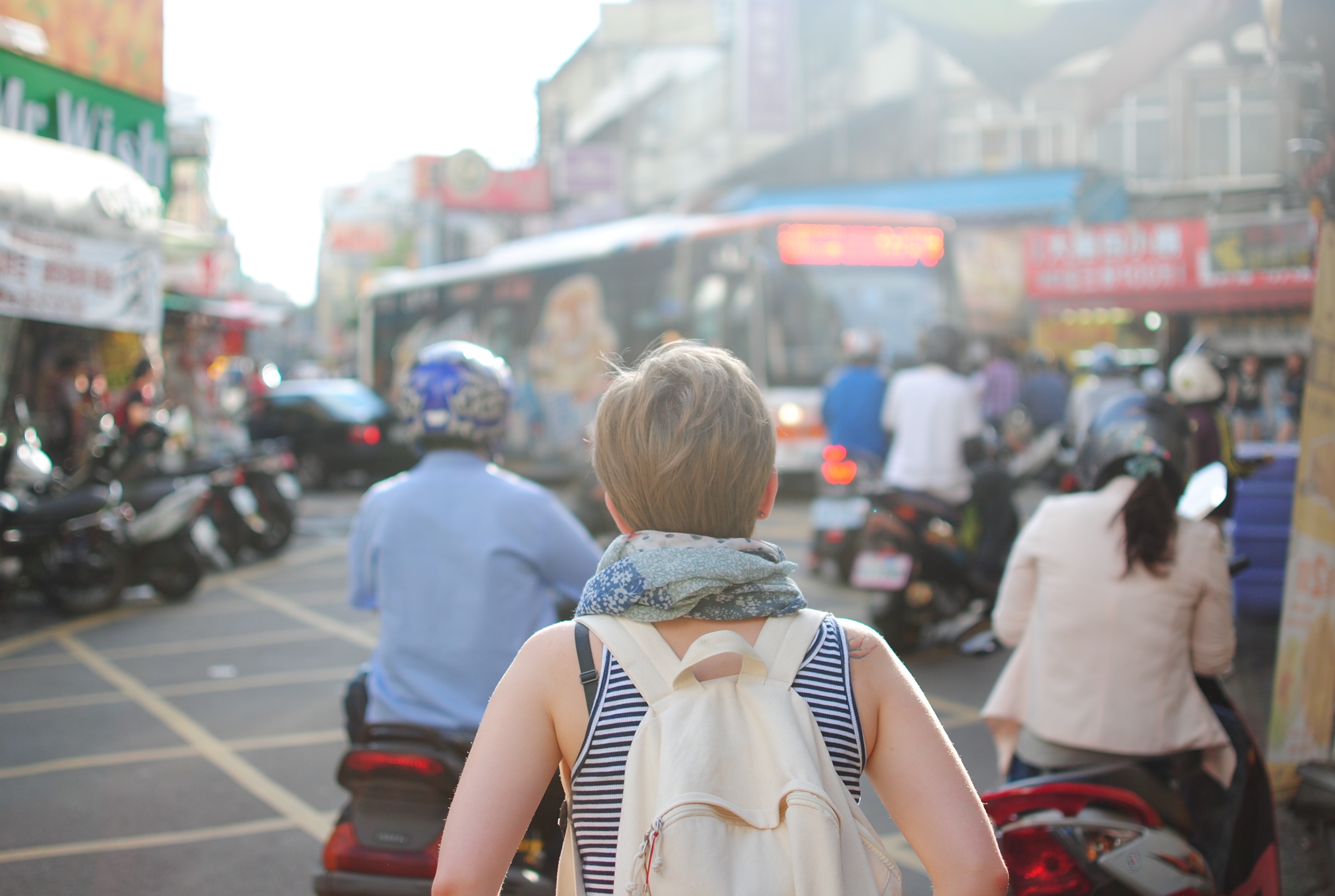We share our top travel money tips to help you make the most informed decision about how to organise your currency before departing. From cash to credit cards and prepaid travel cards, we’ve got all the info you need before you take off.
 Aside from deciding on the perfect destination and the swish hotel you’re going to stay in, it’s also important to put some thought into how you’ll manage your currency before you travel.
Aside from deciding on the perfect destination and the swish hotel you’re going to stay in, it’s also important to put some thought into how you’ll manage your currency before you travel.
It’s not as easy as just using your debit or credit card overseas, it’s definitely worth assessing the most cost effective options you have to manage currency.
We’ve listed some of the things we think you should keep in mind before you travel. We’ll cover ways you can organise your currency, and what you should consider in making your decision.
1. Get organised before you fly
If cash or a travel card is the way to go, organisation is key. If you have the time, ordering currency online allows you to avoid paying any fees, lock in an exchange rate and pick the currency up at a location that suits you. Travel Money Oz and Travelex both allow you to pay via BPay and avoid any fees. This will usually take about five business days to get to you, so make sure you have the time. There a number of ways to go about organising currency;
- Purchase currency on a prepaid travel card (online or in store)
- Purchase currency as cash (online or in store)
- Use a travel credit card
- Use your everyday Australian debit or credit card
Also keep in mind that if you decide to exchange cash in store, the location of that store can impact on the rate you’ll get. As a standard rule, stores in your CBD will have the best rates while the airport will have, by far, the worst. So we highly recommend avoiding exchanging any currency as you fly out.
This is our check list for the best way to buy currency depending on your situation
| Checklist | Online | In-Store |
| I live or work near the CBD |  |
|
| I want to pick up cash at a suburb closest to me or at the airport |  |
|
| I want to buy currency today |  |
|
| I want to pay zero fees by using Bpay or Polipay |  |
|
| I want to avoid paying a commission |  |
|
| I want to buy US Dollars, Euros or Pounds |  |
|
| I want to buy any other currency |  |
|
| I want to buy exotic currency |  |
|
| I want to sell some foreign currency |  |
|
| I want to buy or sell more than $10,000 |  |
2. Find out how much your bank will charge you on international transactions
It is really important to be aware of the fees you’ll encounter if you do use your Australian debit or credit card overseas. Below we’ve listed the fees associated with using your debit card internationally for leading Australian banks. Note that credit cards will incur an additional fee, a cash advance.
Debit card fees
| Card | Type | Set ATM Fees | Transaction fee (for international purchases) |
| NAB Classic Banking | Visa | $5.00 | 3% |
| ANZ Access Advantage | Visa | $5.00 | 3% |
| Westpac Choice | Mastercard | $5.00 | 3% |
| Commonwealth Bank Smart Access | Mastercard | $5.00 | 3% |
| Macquarie Transaction Account | Mastercard | $5.00 | 3% |
| ING Direct – Orange Everyday | Visa | $2.50 | 2.5% |
| Citibank Plus | Mastercard | $0 | $0 |
Credit Cards International Transaction Fees
| Card | Type | Set ATM Fees | International Transaction Fee | Cash Advance Fee |
| ANZ Low Rate, First & Rewards Visa | Visa | $5.00 | 3% | 2% or at least $4.00 |
| Westpac Low Rate, 55 Day & Altitude Rewards Credit Card | Visa | $5.00 | 3% | 2% or at least $2.50 |
| NAB Low Rate, Premium & Velocity Rewards Credit Card | Visa | $5.00 | 3% | 2% or at least $2.50 |
| Commonwealth Low Rate, Awards & Platinum Awards Credit Card | Visa | 2% or at least $2.50 | 3% | 2% or at least $2.50 |
Make sure you let your bank know so they’re aware that there will be internationally purchases being made. You don’t want to be stuck in a foreign country with a card that doesn’t work! We’d still recommend keeping these as a back up, and not using them as your primary payment method overseas.
Travel cards
Travel cards are a really good option. They add a layer of security you wouldn’t find if you simply took cash with you. Some providers, such as Travelex can issue prepaid cards on the spot so it doesn’t even require too much planning.
Like anything though, these cards do come with fees. We’ve compiled a table below demonstrating the cheapest to the most expensive cards. We based our calculations on the fact that the average amount that Australian’s spend is $4,769 for a three week holiday.
| # | Travel money card | Cheapest to most expensive |
|---|---|---|
| 1 | Travelex Multi-Currency Cash Passport | A$160.69 |
| 2 | Commonwealth Travel Money Card | A$212.45 |
| 3 | Virgin Velocity Global Wallet | A$218.72 |
| 4 | Australia Post Load&Go | A$219.19 |
| 5 | St. George Global Currency Card | A222.00 |
| 6 | NAB Traveller Card | A$240.09 |
| 7 | ANZ Travel Card | A$242.29 |
| 8 | Qantas Cash Travel Card | A$245.88 |
| 9 | Suncorp Cash Passport | A$253.80 |
| 10 | Mastercard Cash Passport & Bendigo Bank Prepaid Cash Passport | A$260.30 |
| 11 | Westpac Global Currency Card | A$280.00 |
3. Identify what kind of traveller you are & choose the most cost-effective option
If you’re traveling overseas for work frequently, the way you should manage your money might be entirely different to if you’re traveling overseas for a two week holiday.
- If you’re traveling frequently, and can stay on top of it, a travel credit card is a great option. It allows you to accumulate points, helps you avoid fees associated with a prepaid card and can offer a better exchange rate.
- If you’re going on a shorter trip, simply having cash with you might be sufficient. Having your usual debit card with you in this instance can be okay as well. The fees can be comparably higher but if you’re not using it often on the trip, it saves you the hassle of organising a prepaid or credit card.
- If you’re planning a trip well ahead of time, and you like to plan, a prepaid card is great for a number of reasons. You can purchase currency ahead of time, and lock it into the exchange rate. It provides a more secure option than carrying cash.
Summary
We’ve covered a number of factors you should consider when organising your finances before you travel:
- The type of traveller you are
- How much time you have
- Where you’re traveling and how much currency you’re taking
- The different ways you have to organise your currency.
We hope these tips are useful in getting you on your way. Happy traveling!